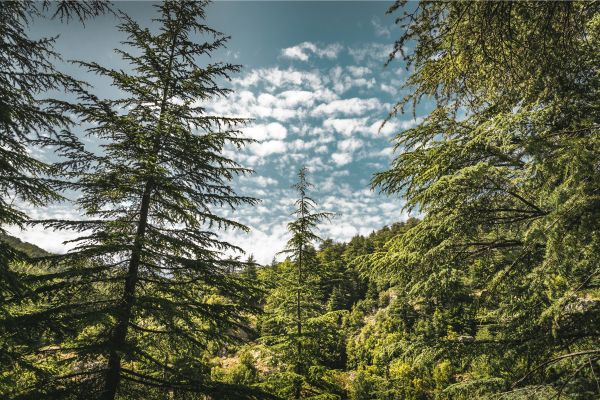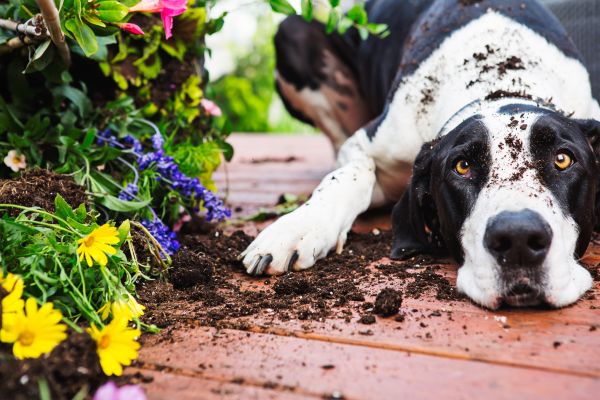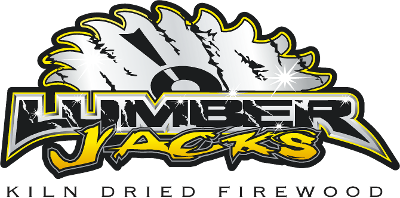Spring is in the air, and with it comes unlimited possibilities for your outdoor space. One thing most people will consider due to its many benefits is mulch. After all, mulch doesn’t just look great. It also helps retain soil moisture and temperature, prevent weeds and decrease the risks of washouts. One popular mulch choice you may be debating is cedar mulch, which is highly regarded for its bug-repellant properties. But you may want to step back before investing in this specific mulch type.
While cedar mulch (like every other mulch type) comes with pros as well as cons, we don’t recommend it for a few different reasons. Below, we share five reasons to not use cedar mulch in your outdoor space this season – along with excellent alternatives you can use instead. Or, if you’d rather jump straight to the best alternative, you can check out our detailed mulch page by clicking the button below.
Ready? Let’s dive in…
What is Cedar Mulch?
Before you can understand the downsides to its use, it helps to understand what cedar mulch is. Like other organic mulches, this is made from shredded, shaved or clipped trees. In some cases, the mulch may be made from the bark of a cedar tree exclusively rather than the whole thing.
Cedar Trees
“Cedar” mulch comes from various ornamental conifers that fall with the cedar genus umbrella. You’ve likely seen the Western Red Cedar because they’re native to Illinois and the surrounding region and grow in abundance in some areas. Related trees that grow in other parts of the nation (or globe) include the Deodar Cedar, Northern White Cedar, Lebanon Cedar, Incense Cedar… you get the idea. More than a dozen tree species can be collectively called “cedar.”
Cedars are used extensively for decorating outdoor spaces because they’re aesthetically pleasing. Although the shades of green vary, all have thick needle-like growths and grow relatively quickly to reach heights up to 197 feet. They possess a moderate drought tolerance and can live up to 300 years.
Besides being an ornamental favorite, cedar trees are used in various industries. It’s often used to make decorations, buildings, toys and, of course, mulch.

Cedar Mulch Benefits
We want you to have the whole story, so it wouldn’t be fair to tell you all the downsides to cedar mulch without first touching on the benefits. There are two primary benefits we’d be amiss not to mention:
- Smell: Cedar trees and their byproducts (including mulch) possess a strong, earthy smell many people love. Cedar scents are so beloved that they have found their way into perfume, body spray, candles and room deodorizers.
- Bug Repellant: The oils found in cedar trees naturally repel bugs, including termites. Moths, beetles, ants and many other insects can’t stand the smell of cedar.
But, as you’ll see in the section below, these benefits aren’t enough to outweigh the downsides associated with cedar mulch. There are much better options that are safer and work more effectively.
5 Reasons to Not Use Cedar Mulch
There are five primary reasons not to use cedar mulch in your outdoor space – whether at your business or home. We’ll talk in detail about each of these issues below.
1. Negatively Affects Your Yard’s Ecosystem
It’s true that cedar mulch is excellent at repelling problematic pests from your garden beds. Unfortunately, it does too good of a job and repels the bugs you want in your yard.
Many types of bugs that are beneficial to your garden. For example, worms will help naturally aerate your soil so your plants can breathe better. Their feces also help feed your plants. Other beneficial bugs include ground beetles, ladybugs and praying mantis.
Without these beneficial bugs, your yard’s ecosystem will start to decline. Your soil will be less nutrient-dense, and your plants will suffer greatly. Plus, eradicating all bugs from your garden harms the larger ecosystem that your yard plays a part in.
Bugs are eaten by birds and some small mammals, each playing their part in maintaining your yard and the greater environment. That wildlife is eaten by larger predators, which keep certain prey animals in check. When larger predators aren’t around, the smaller prey gets out of control and can ruin your landscape.
See how important a balanced ecosystem is? You don’t want to throw it out of balance, or the consequences can be much more dire than you’d think.
2. Increased Risk of Allergies
Unlike other wood used to make mulch, cedar comes with an increased risk of allergies. Many people are sensitive to cedar oil –the same substance that makes the tree smell great.
Since that smell is so potent, allergy sufferers won’t only be affected when outside. Using cedar chips close to your home’s entrances or windows could cause symptoms for sensitive individuals who are inside, too.
Plus, it’s not only people with an actual cedar allergy who may be affected. Certain at-risk people, like those with asthma or other breathing disorders, may find that their condition worsens when exposed to a strong cedar scent.
Of course, an increased risk of allergies or an exacerbation of breathing disorders won’t affect everyone. But we believe it’s better to be safe than sorry because you never know what problems your guests may have. Nothing ruins a great outdoor barbecue or birthday party more than coughing, sneezing, itching or wheezing!

3. Contributes to Overly Acidic Soil
When cedar mulch decomposes, it adds acid to the soil. Although this isn’t always an issue (and some plants even do better in more acidic conditions), it can be incredibly troublesome if your soil already has a low pH.
If you don’t know whether your soil is acidic or alkaline, you’re not alone. You probably haven’t even thought about it if you’re not a farmer or a professional landscaper. But the good news is you can do an easy home test to find out. Simply find a soil test kit at any major garden center and follow the directions on the box.
If your results come back with a pH of 3 to 5, your soil is very acidic. In this case, adding more acid to the soil through cedar decomposition would be a disaster. Soil with a pH of 5.1 to 7 is also considered acidic, although less so.
A pH above 7.1 is considered alkaline. In this scenario, you may be able to get away with adding more acid to the soil by using cedar mulch if you want to. However, we don’t recommend risking it because alkaline soil could quickly turn acidic and create issues.
4. Toxic to Seedlings
Certain seedlings have difficulty growing in cedar mulch, so they won’t thrive and may even perish when covered with it. This issue is most prominent when using cedar sawdust or finely shredded mulch. But plants with shallow root systems also seem to struggle to thrive.
Sometimes, determining whether a seedling or younger plant will prosper when surrounded by cedar mulch can feel like a gamble. We recommend skipping the stress and opting for something less likely to harm your young plants.
5. Dangerous to Dogs
People aren’t the only ones who can be affected by cedar oil. Your favorite four-legged friends can also be affected – and more than people, in fact. The first issue is that dogs, in particular, can be allergic or overly sensitive to cedar oil. If they run through the cedar mulch, the oil or pieces of mulch can stick in their coat. This causes prolonged contact, which can cause severe itching or breathing difficulties.
The second problem, particularly for dogs and other animals, is that ingesting cedar mulch is toxic. If your lovable pet eats it, it can cause severe gastrointestinal problems. Depending on the amount, the problem can range from mild stomach issues to a fatal illness. You should opt for a safer mulch variety if you have a dog (or outdoor cats, even).

Alternative Mulch Types to Use Instead
So, if cedar mulch isn’t the best option, what is? What can you use instead? We’ve got good news for you! There are many alternative options that are safer and more effective!
The Best Option
We believe that the best option is premium hardwood mulch, which we sell at Lumberjacks. Our hardwood mulch is crafted from a combination of birch, oak, cherry and hickory hardwoods that have been locally sourced from trusted harvesters. We process all mulch in-house to maintain the most stringent quality control and ensure you get a premium product every time.
Our hardwood has an additional benefit over competitors, too – it’s made from kiln-dried wood. Kiln-drying is a process that purifies wood, so you know it won’t contain mold, mildew, chemicals or pests. This is excellent news for your landscape! With every order, you’ll only receive 100% organic, absolutely clean hardwood mulch.
The Bare Minimum Requirements for Good Mulch
But what if you can’t order the premium mulch we provide at Lumberjacks for whatever reason? For example, maybe you stumbled across our blog but don’t live nearby. If our premium organic hardwood mulch isn’t an option for you, look for these minimum requirements before making a purchase:
- 100% organic (no construction debris, rubble, rocks, etc.)
- Zero pesticides or chemicals used during processing
- Flexible ordering qualities
- Sourced from local harvesters
- Processed in-house
- Viewable on-site (make sure it’s stored off the ground!)
If you can find mulch in your area made from kiln-dried wood, that’s ideal. If not, skip the bagged mulch found at any major garden center and use local companies instead. You’ll generally get a better quality product from local suppliers versus large corporate bagged mulches.
Ditch the Cedar Mulch and Order Better from Lumberjacks Today!
We get it – cedar mulch smells great, and you’ve been promised it will eliminate all those unwanted pests in your garden beds. But the potential benefits simply don’t outweigh the downsides. It’s better to ditch the cedar and choose a quality hardwood mulch instead.
Ready for a safer and more effective mulching option this season? Place your hardwood mulch order online! At Lumberjacks, we’re prepared to provide you with the top-notch mulch your lawn deserves – and we can deliver it to certain areas for even more convenience! Click the button below to place your order today!








